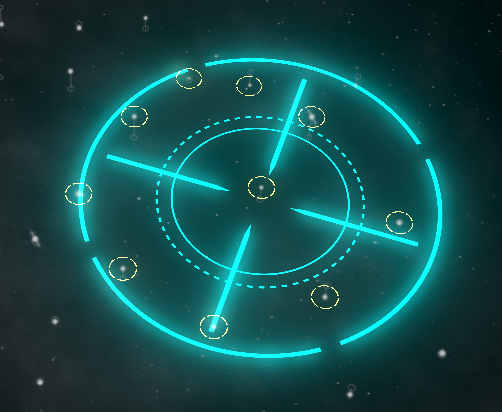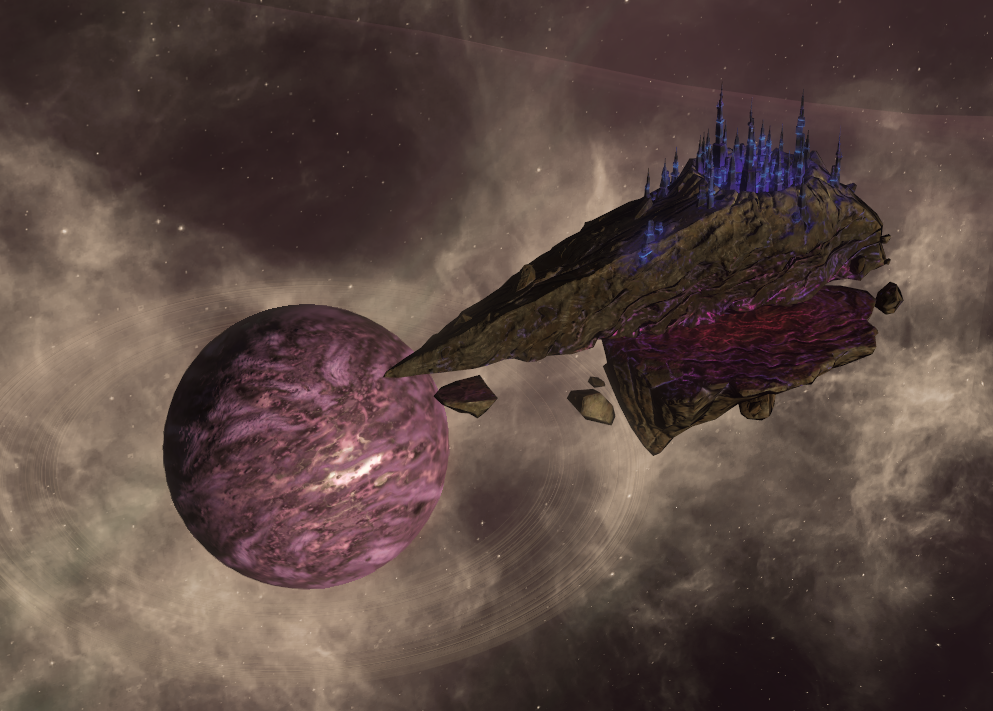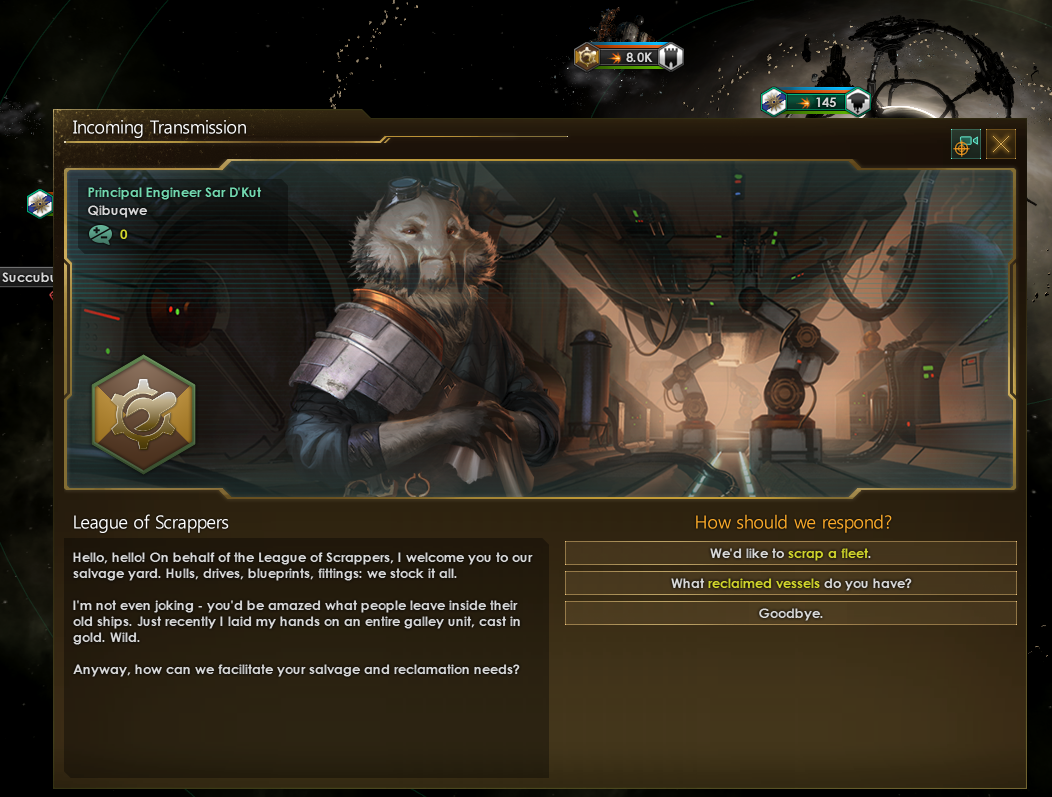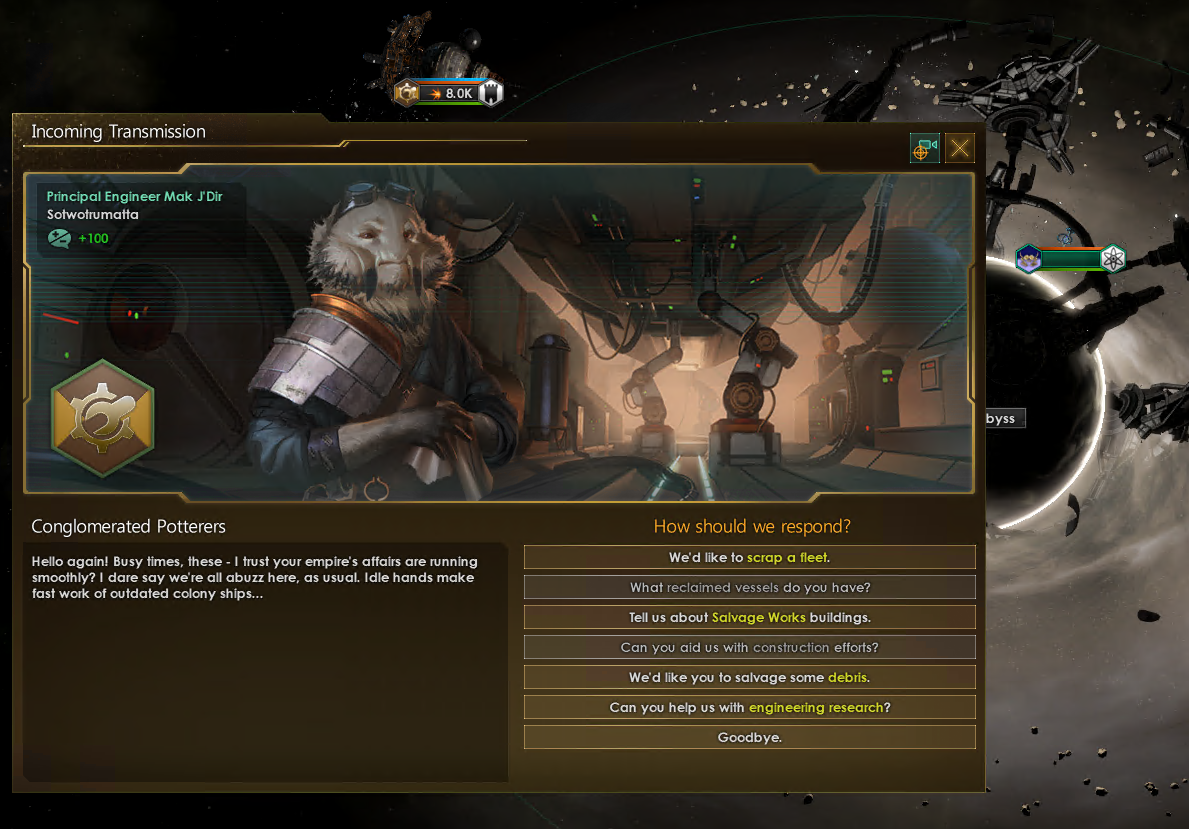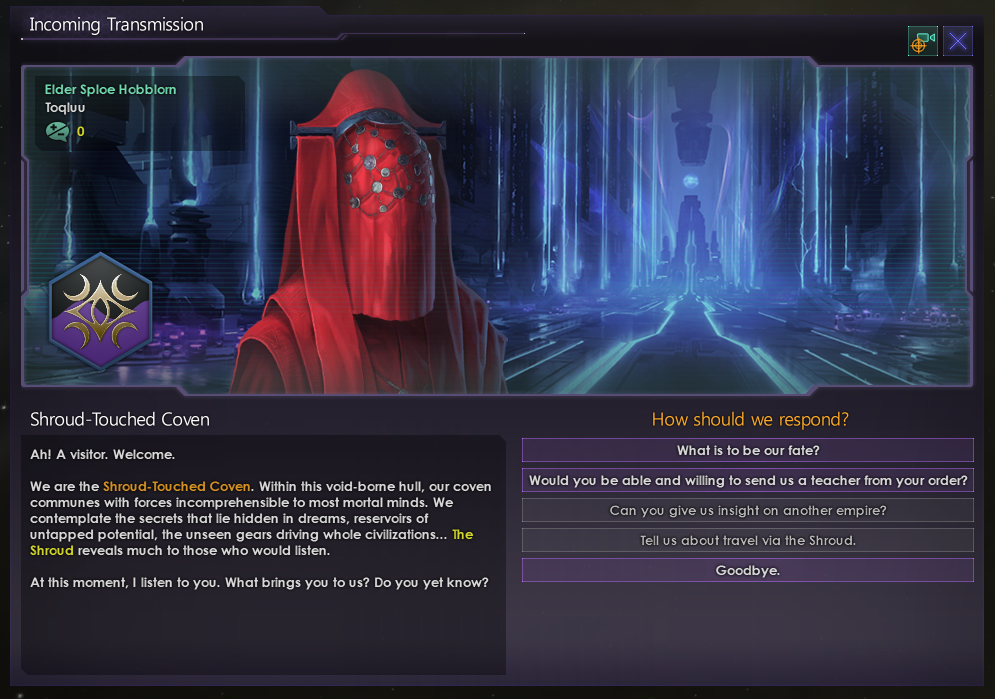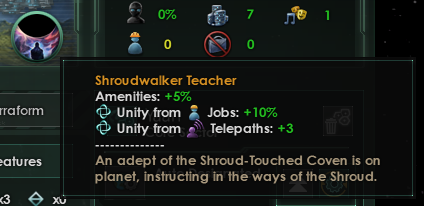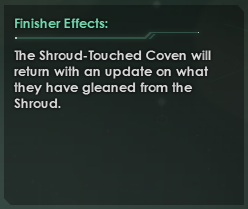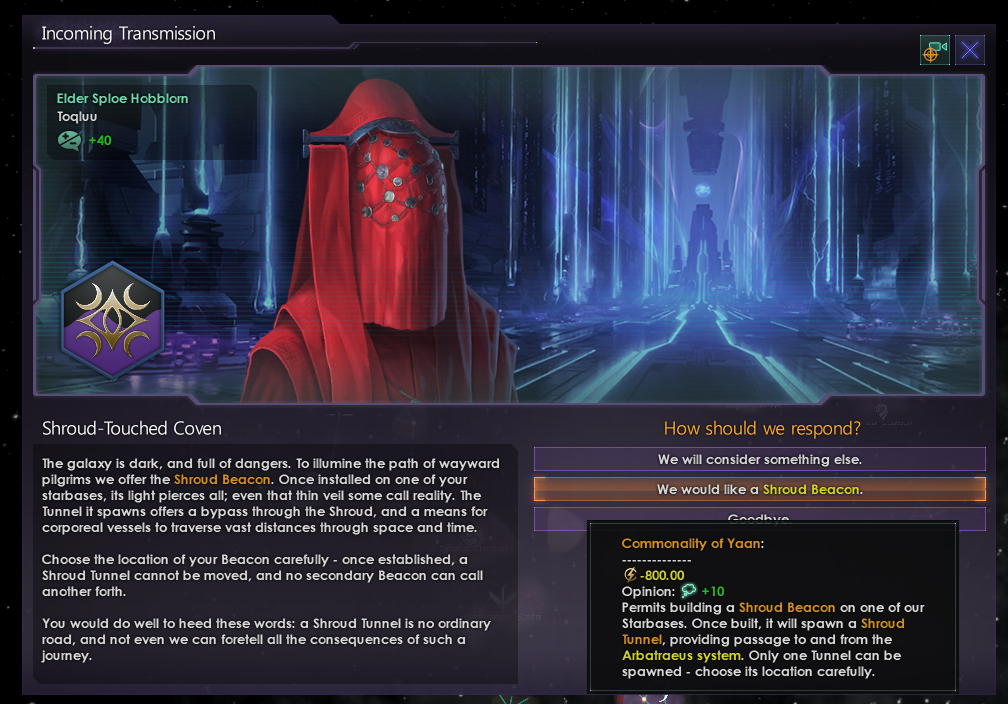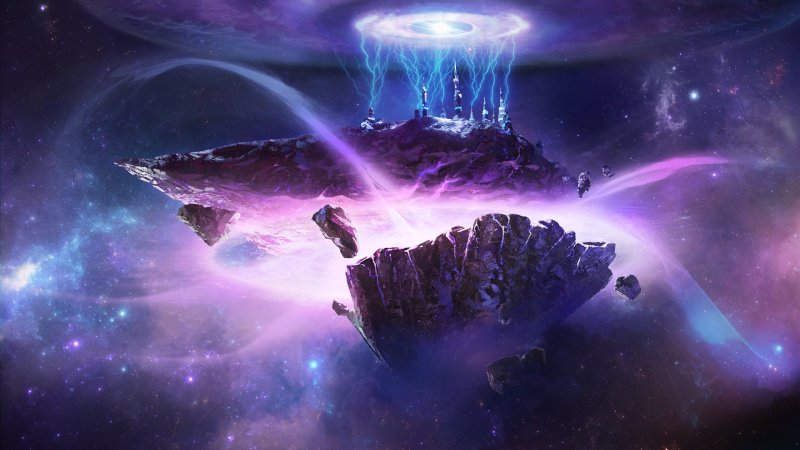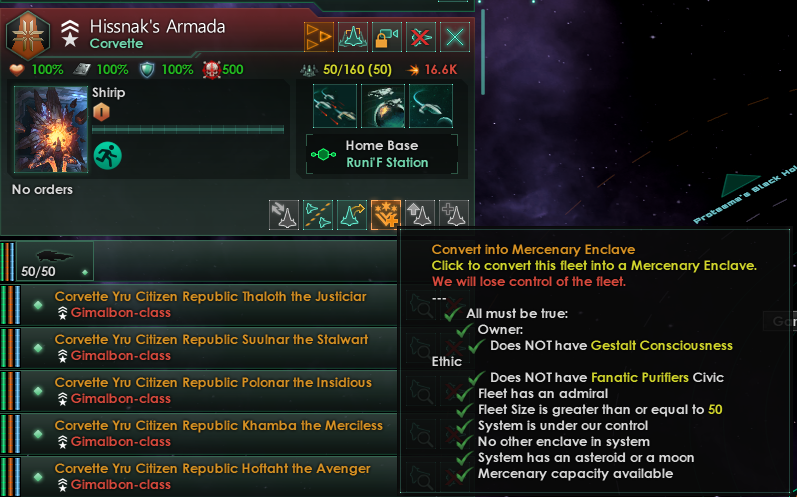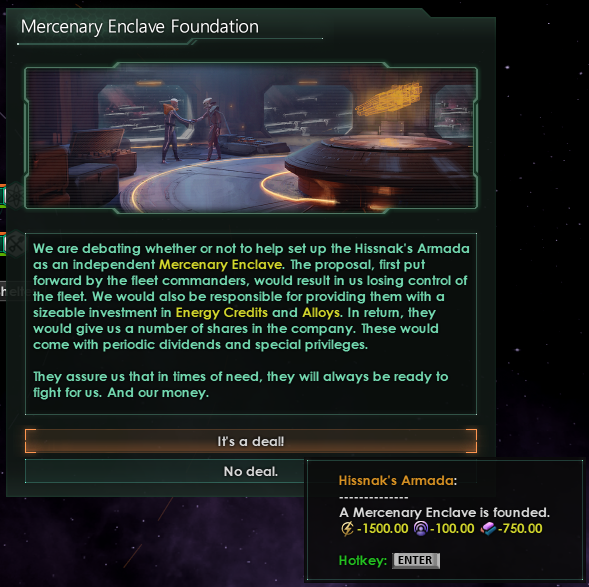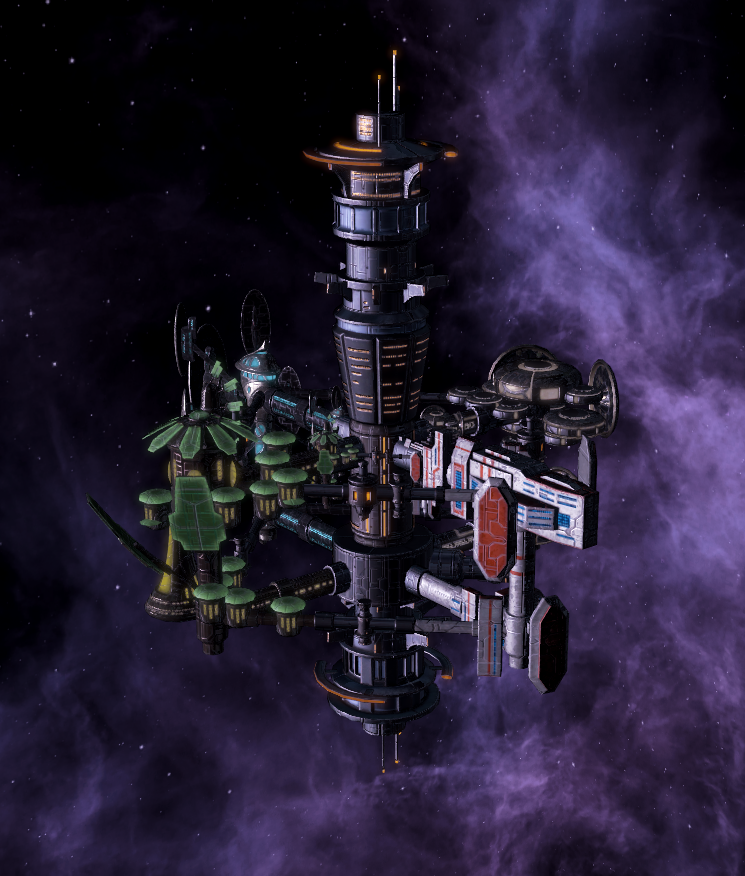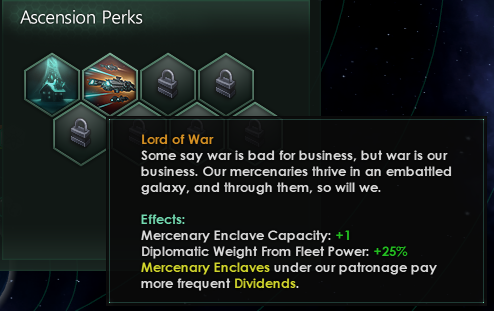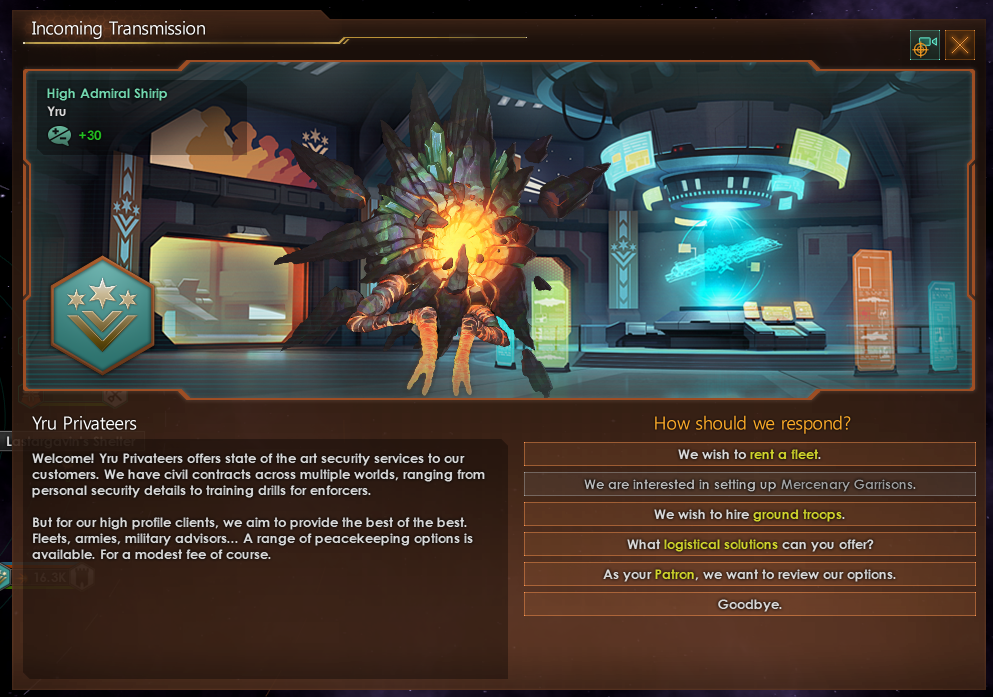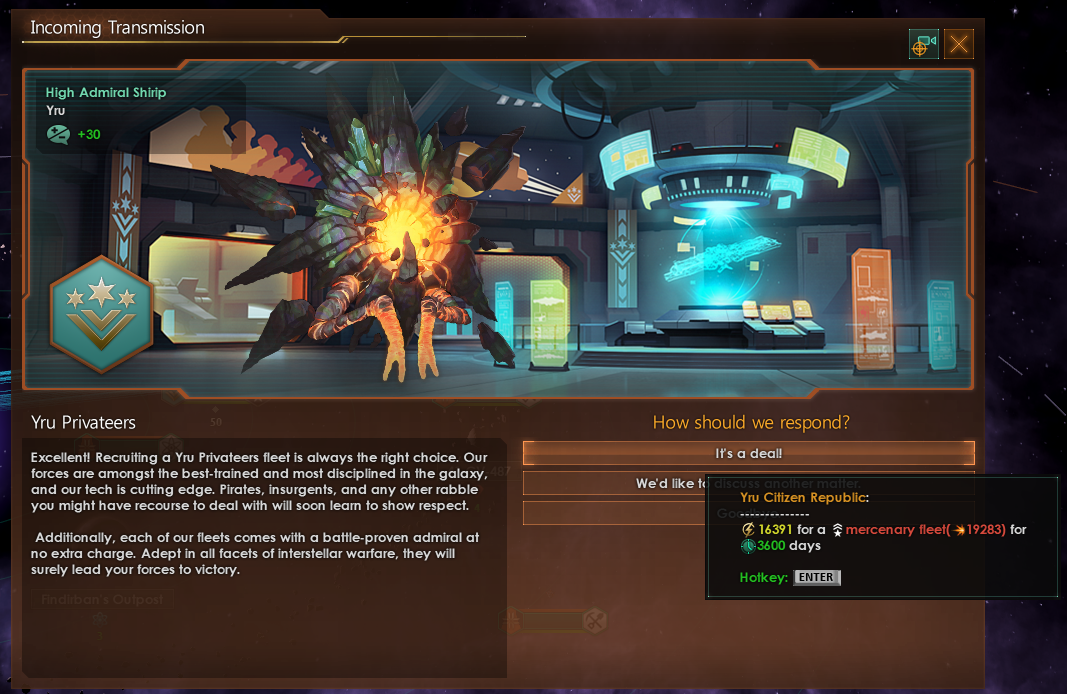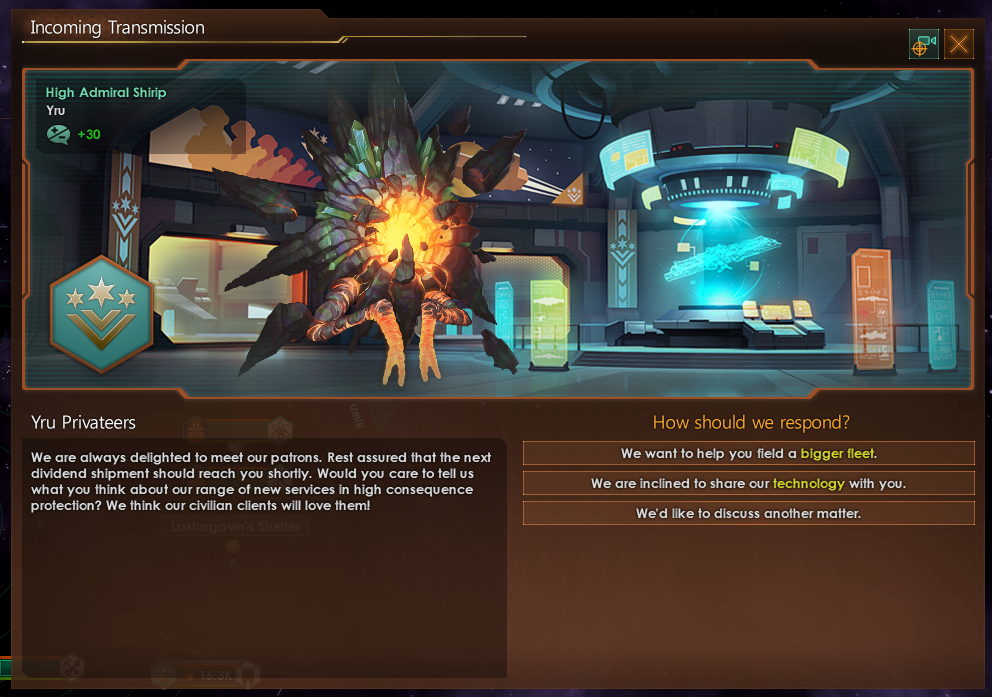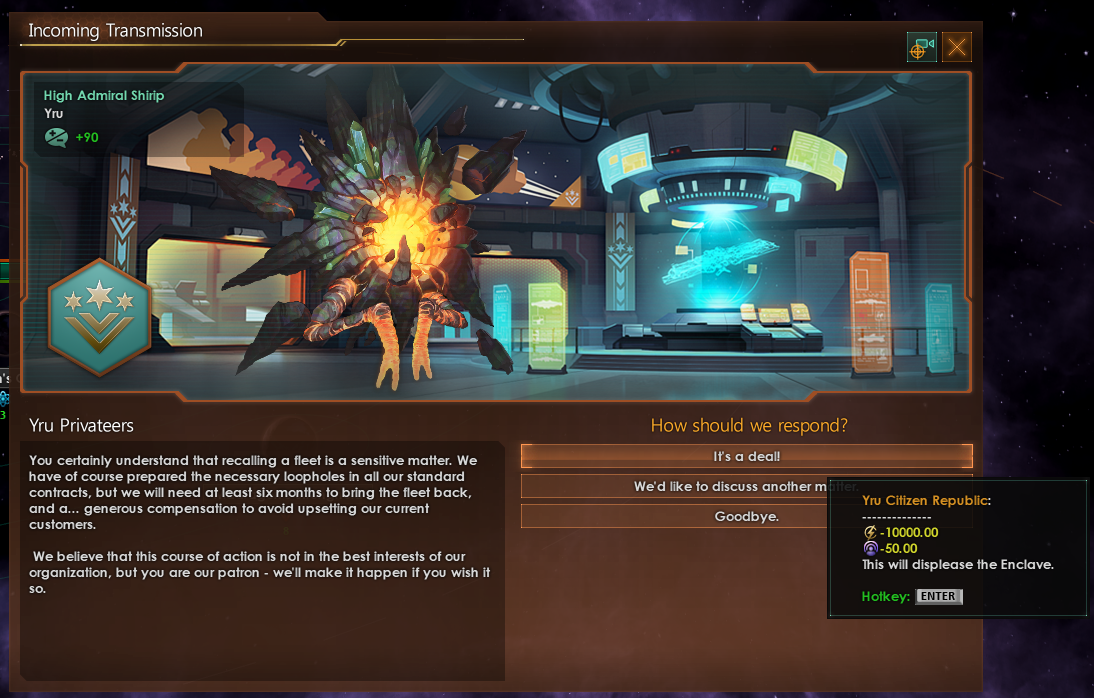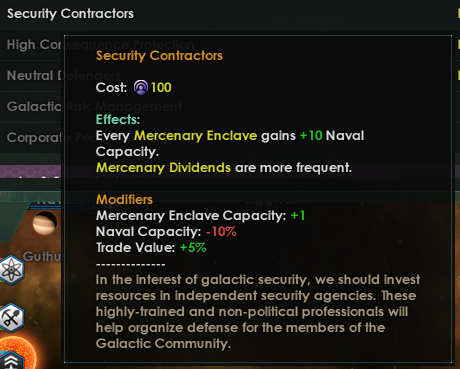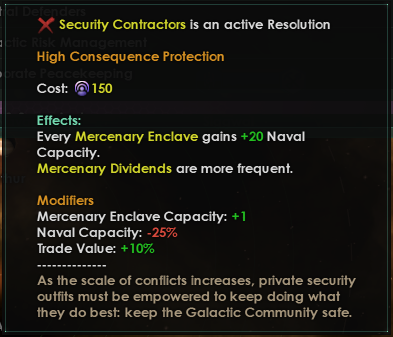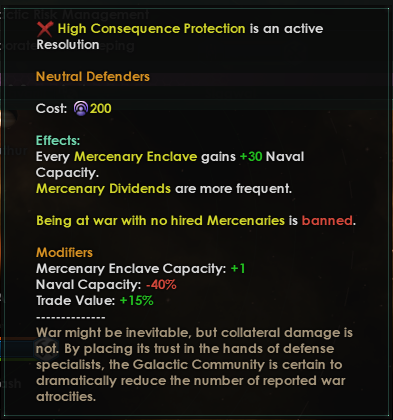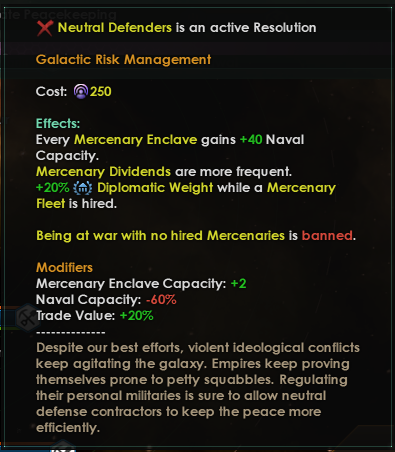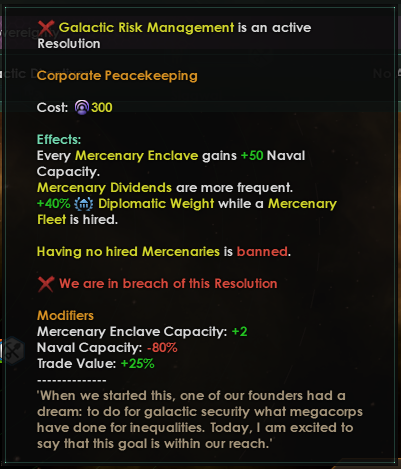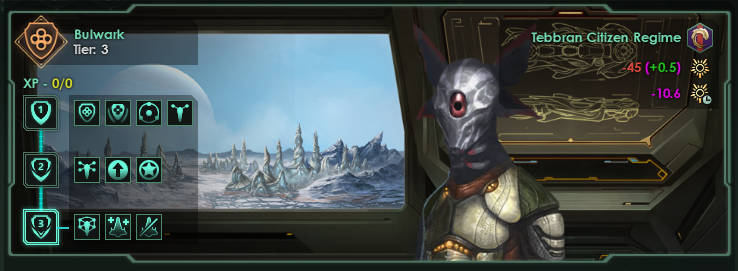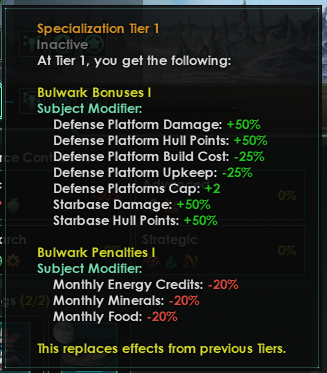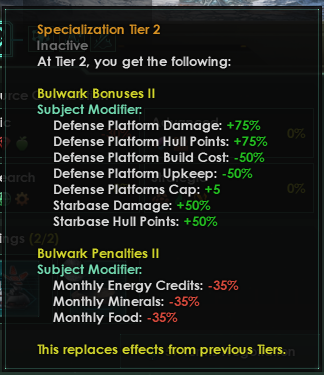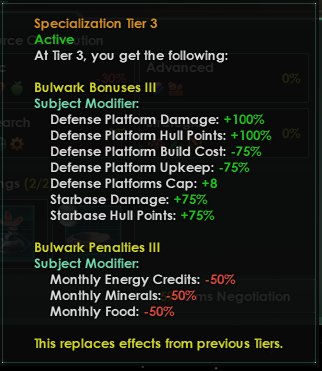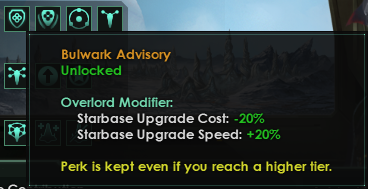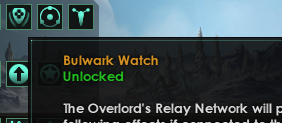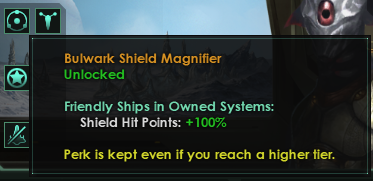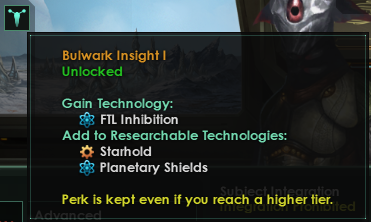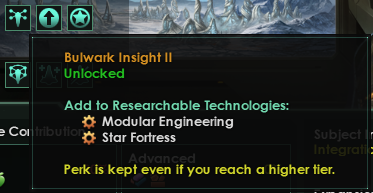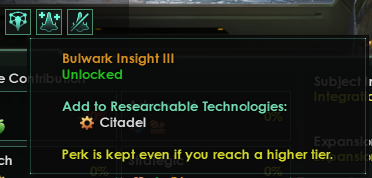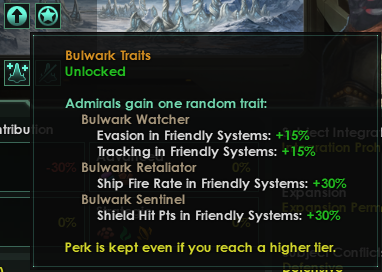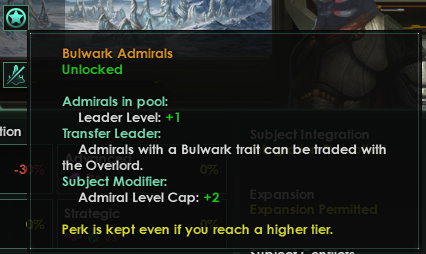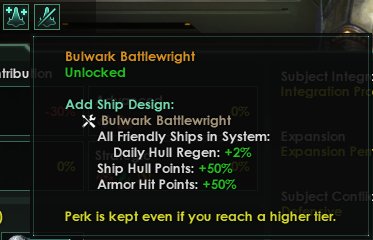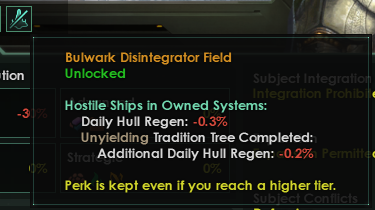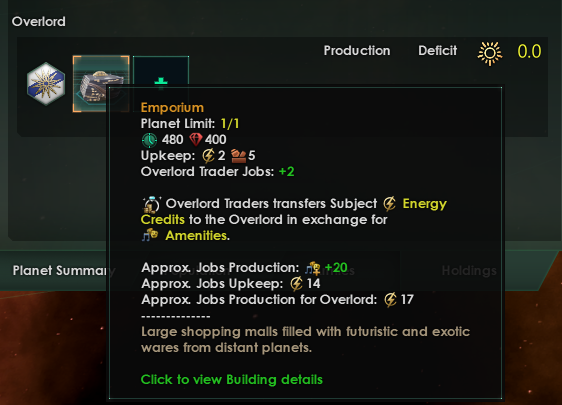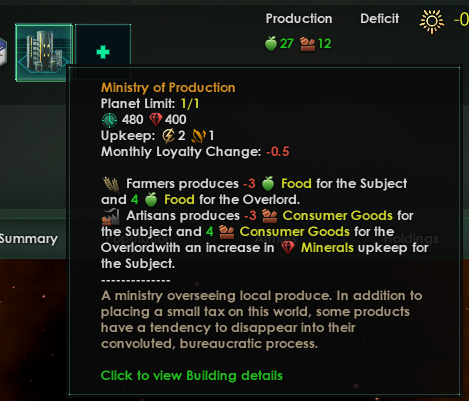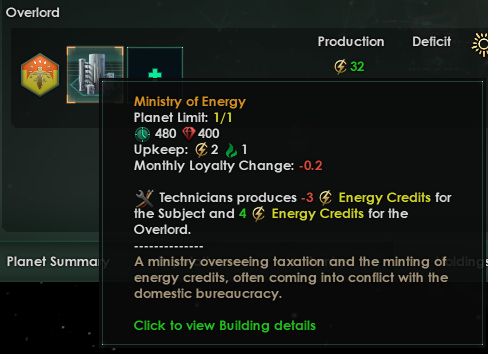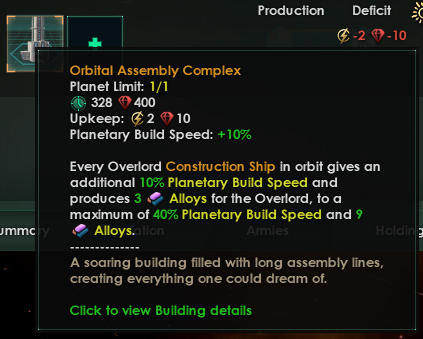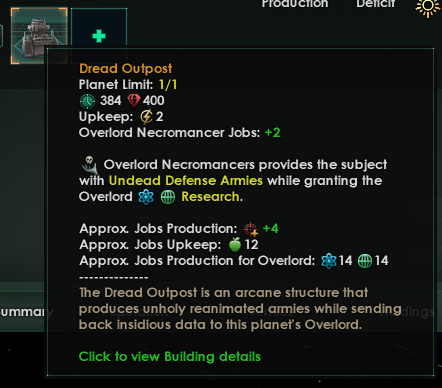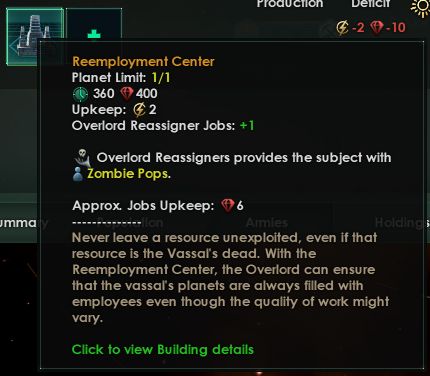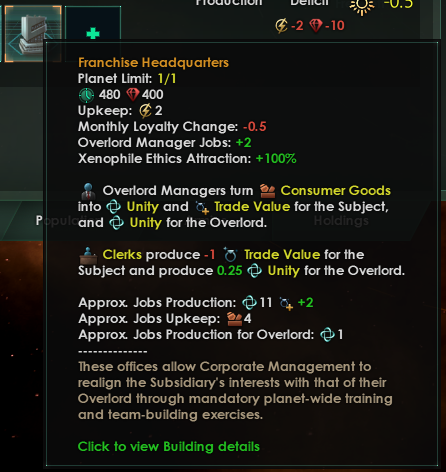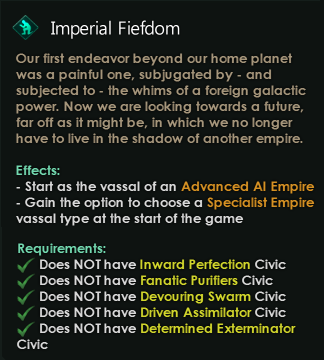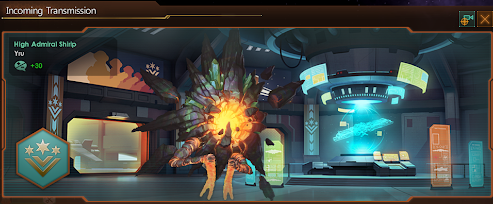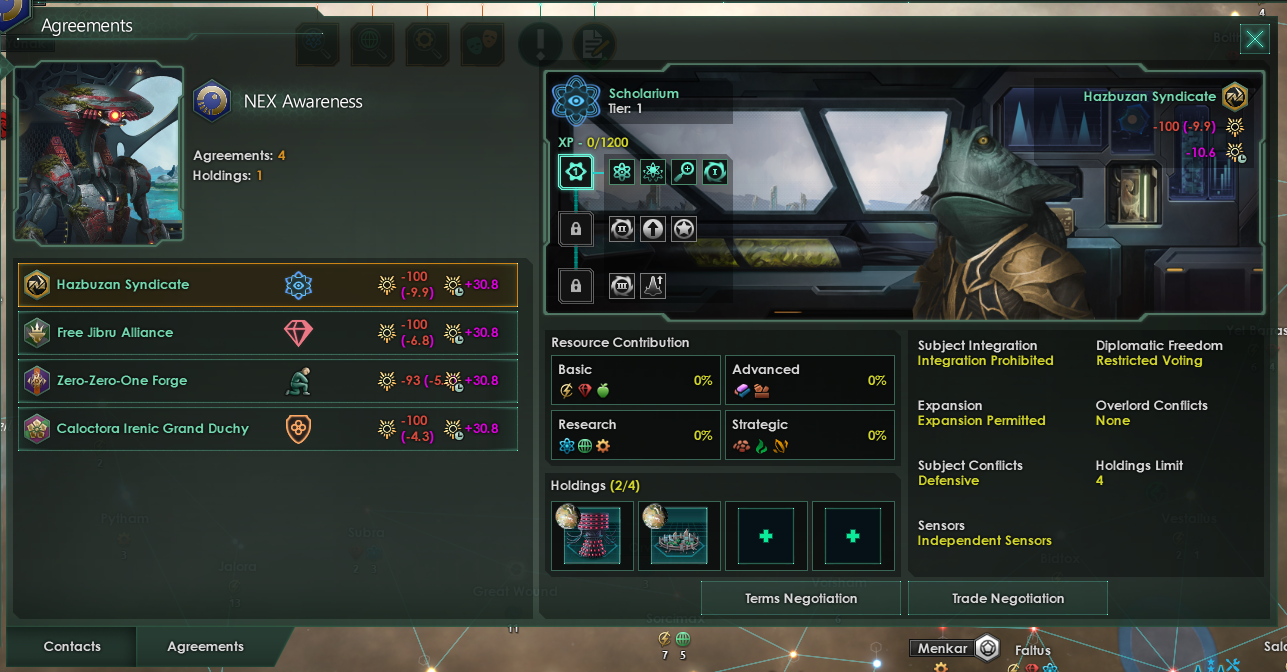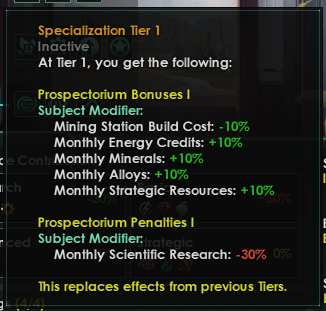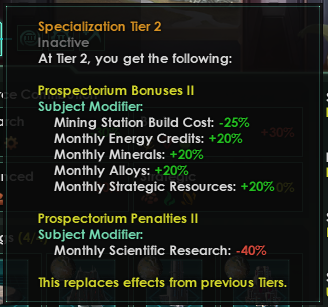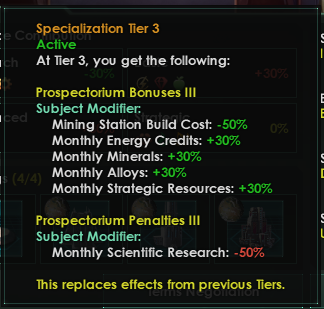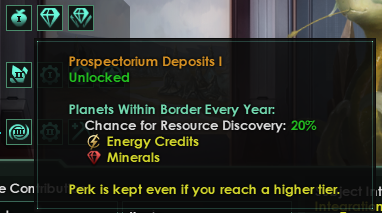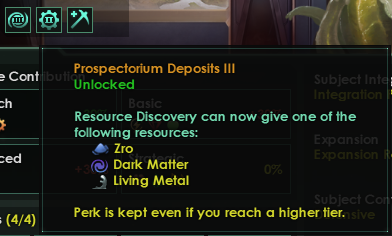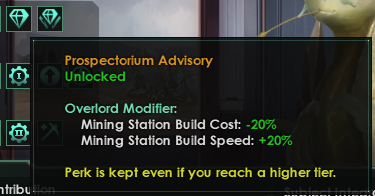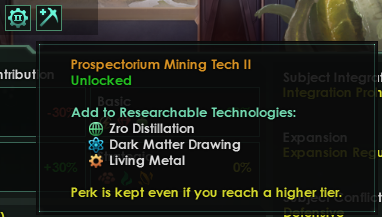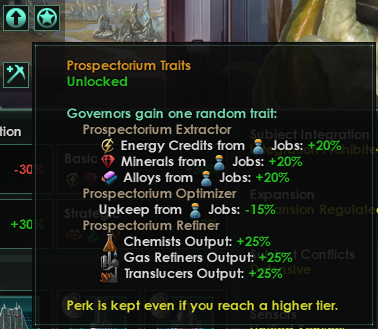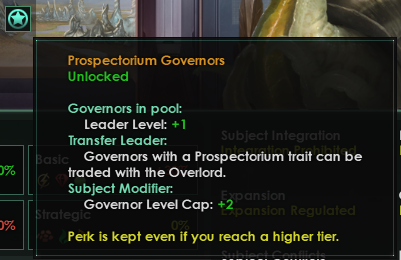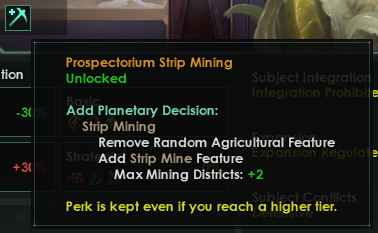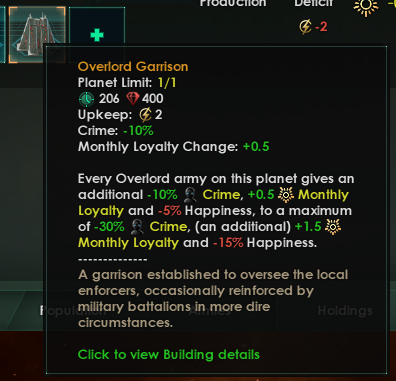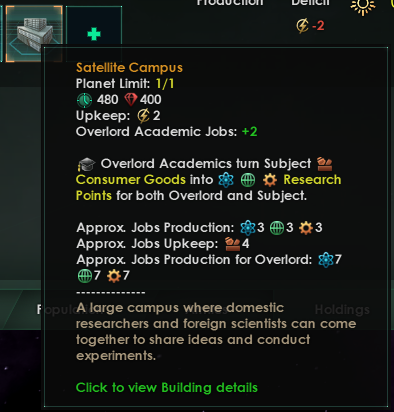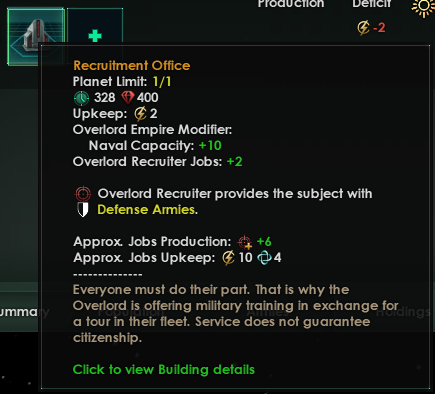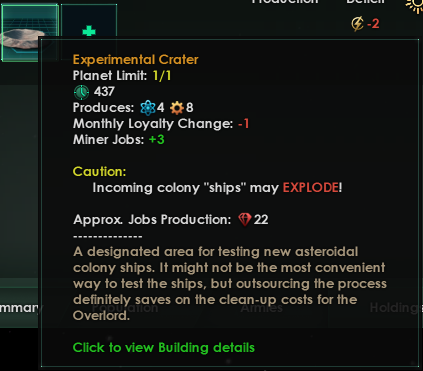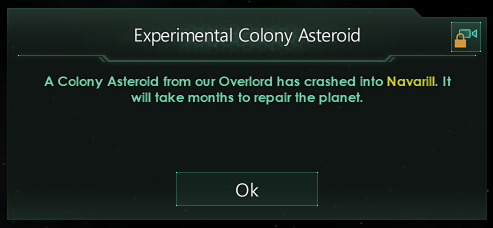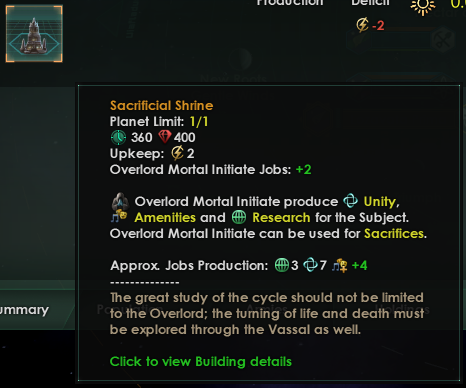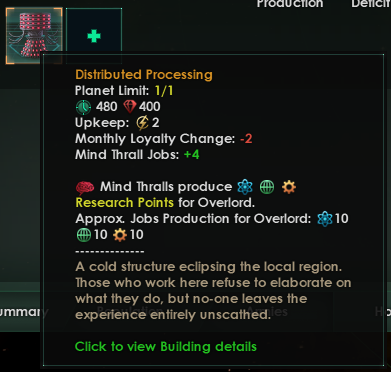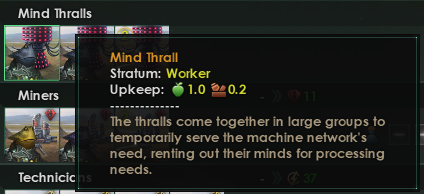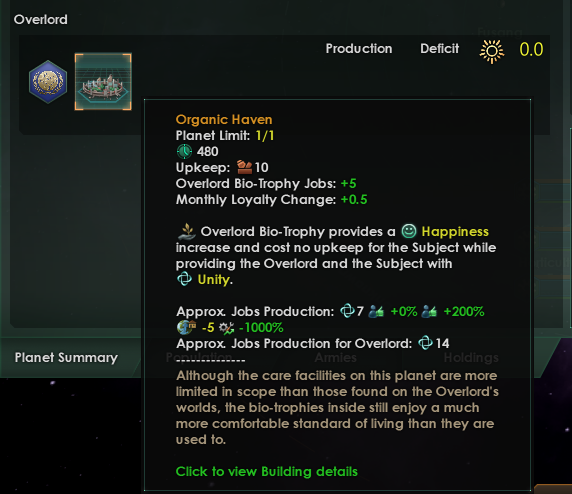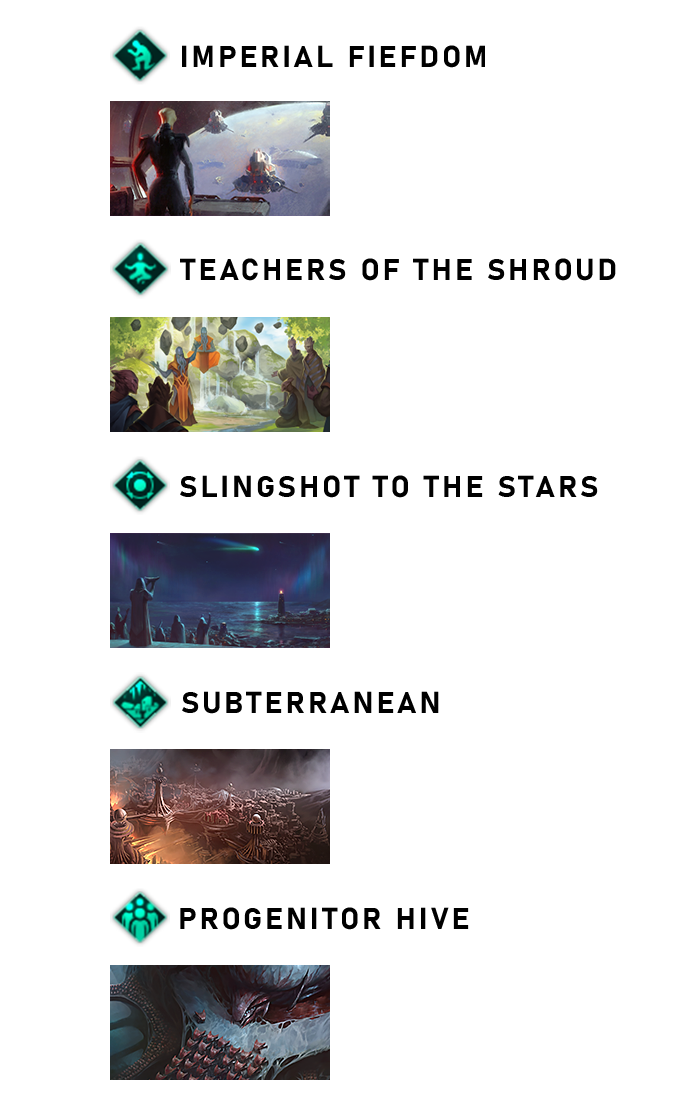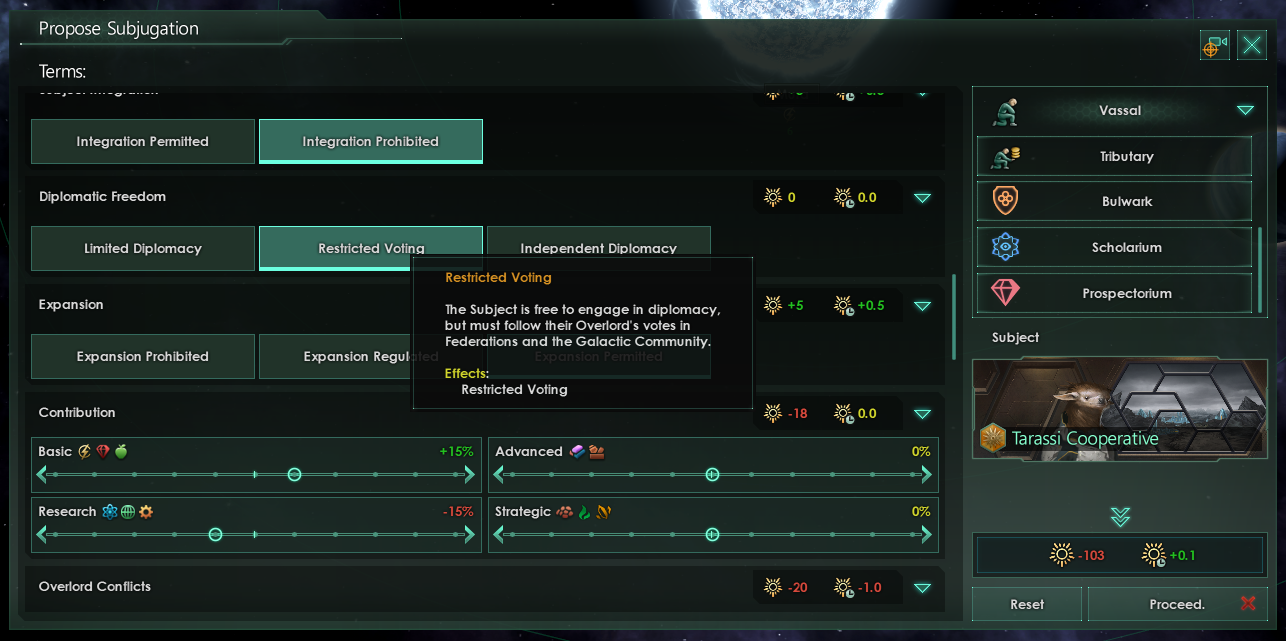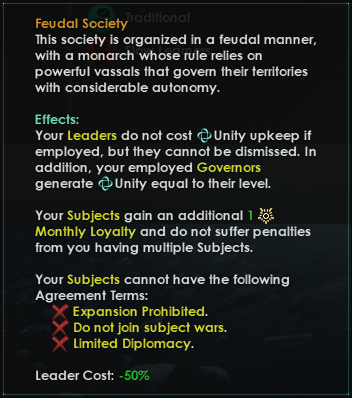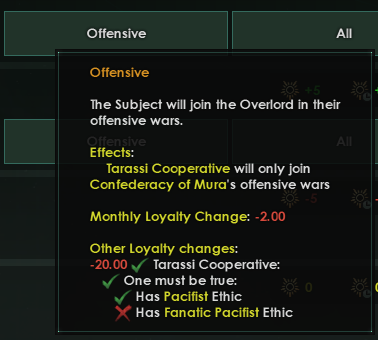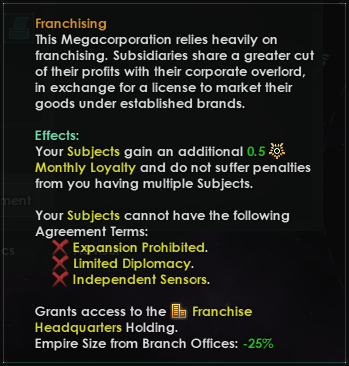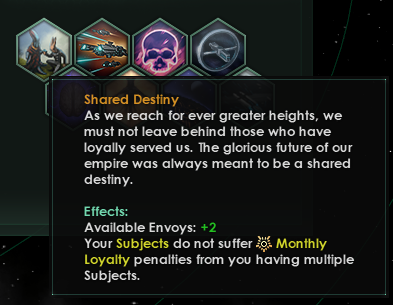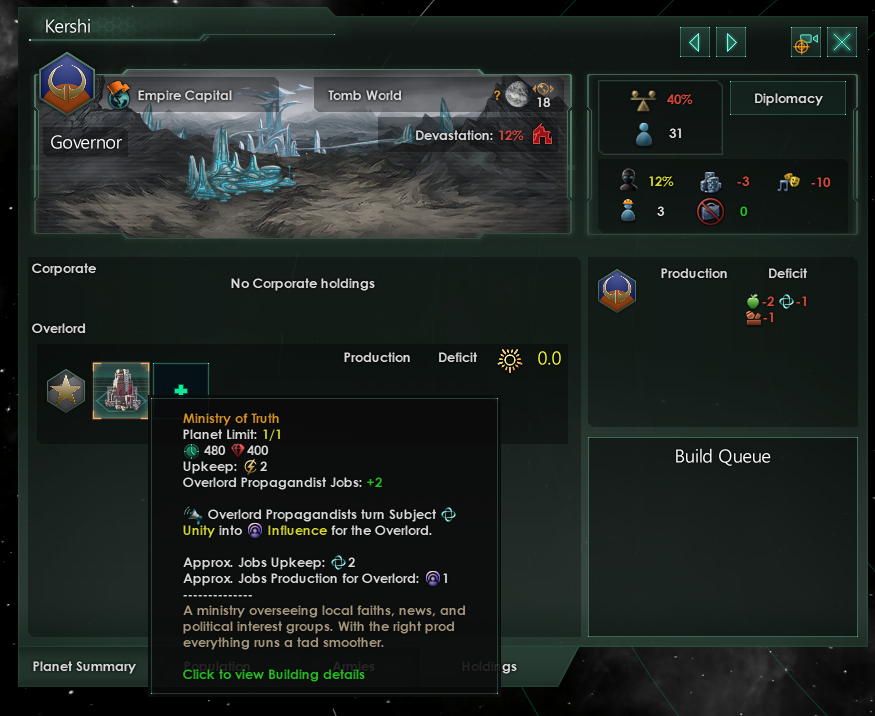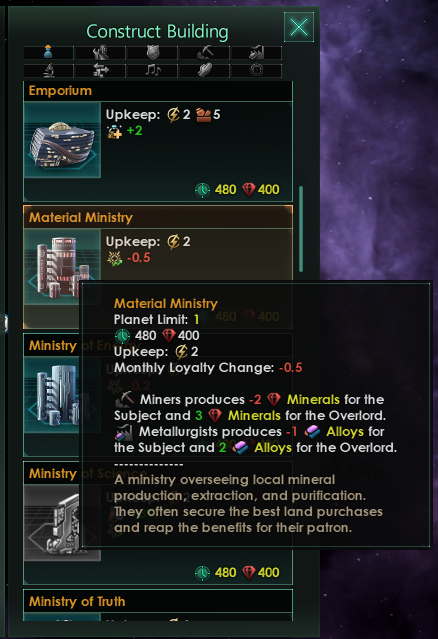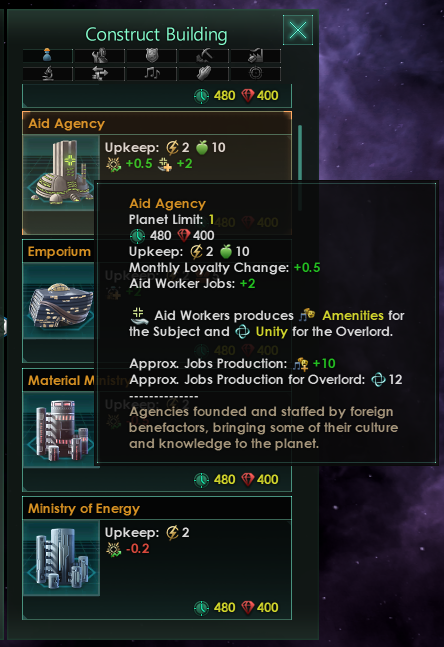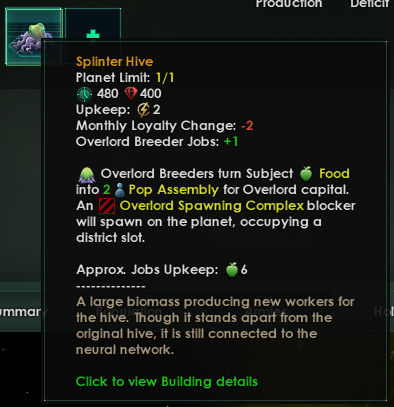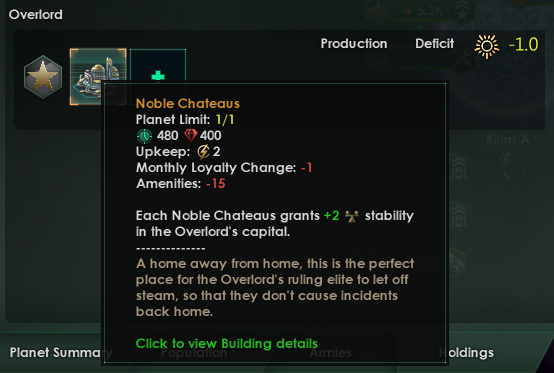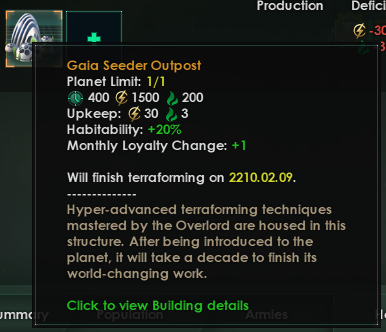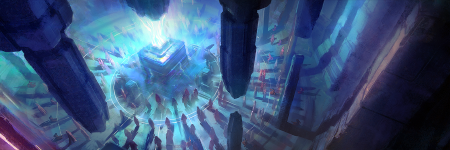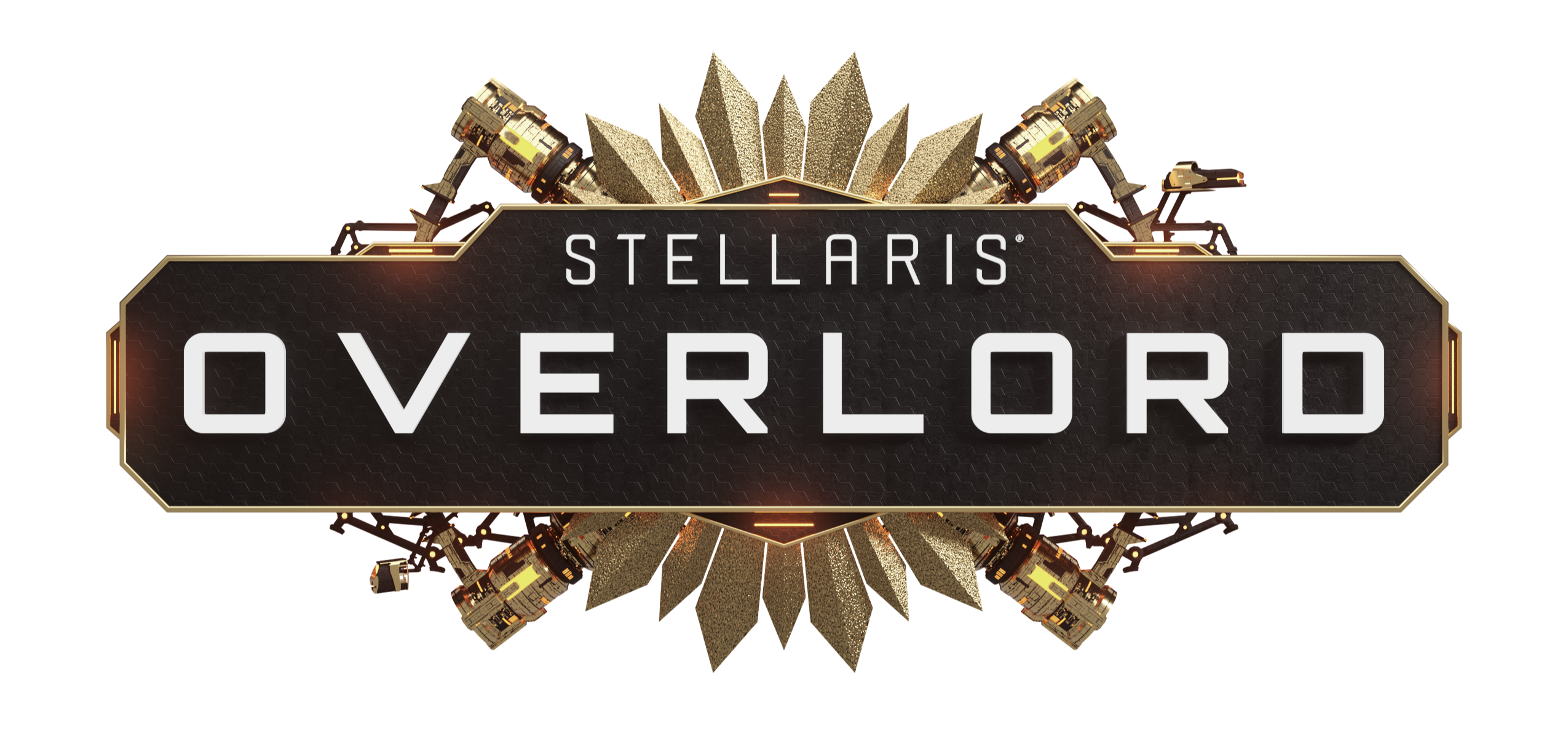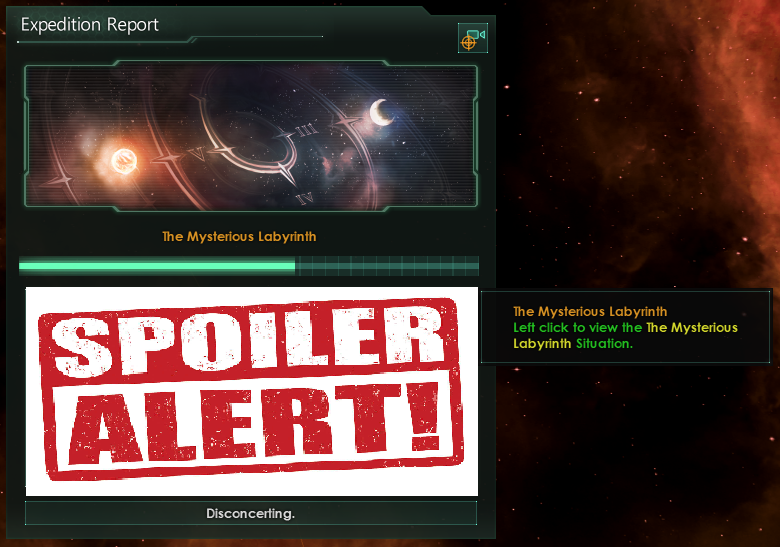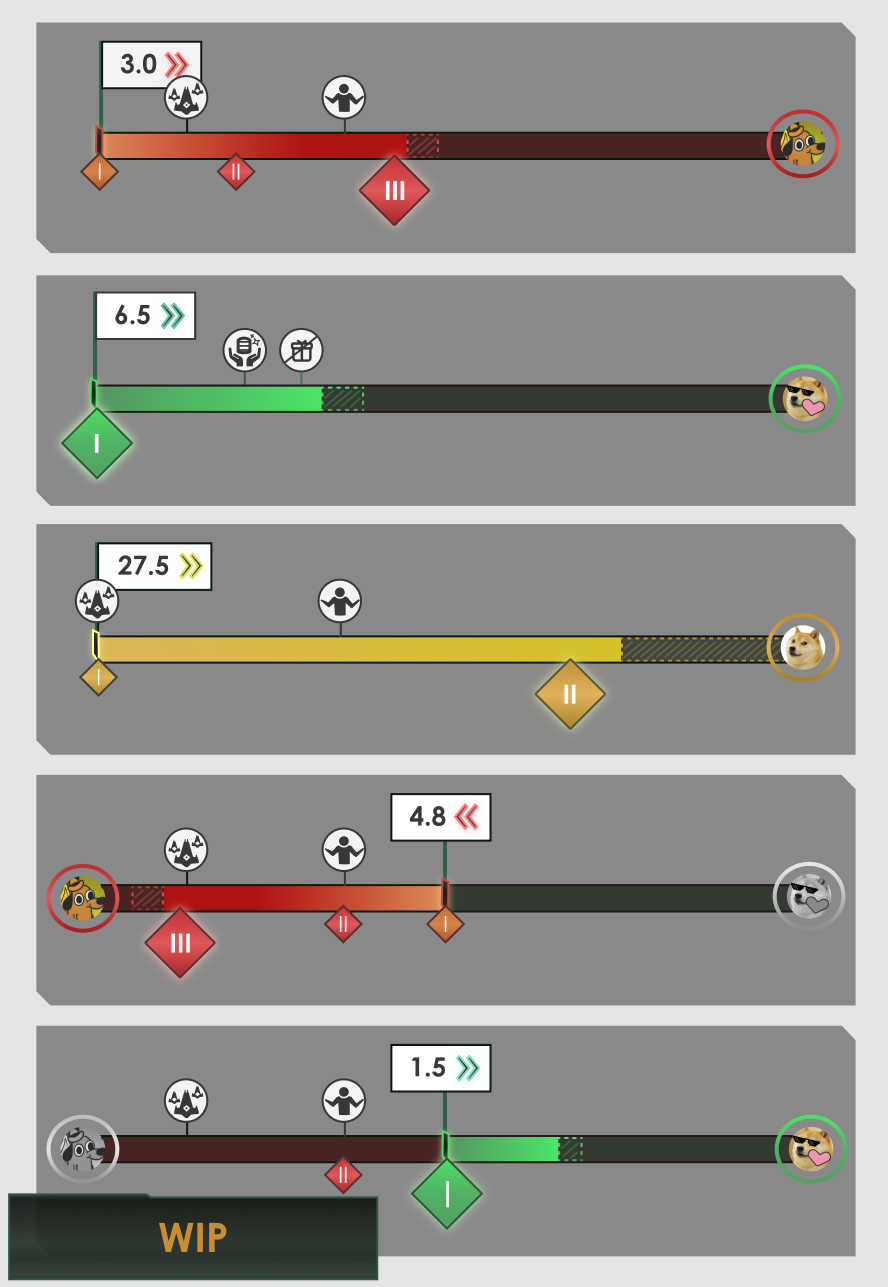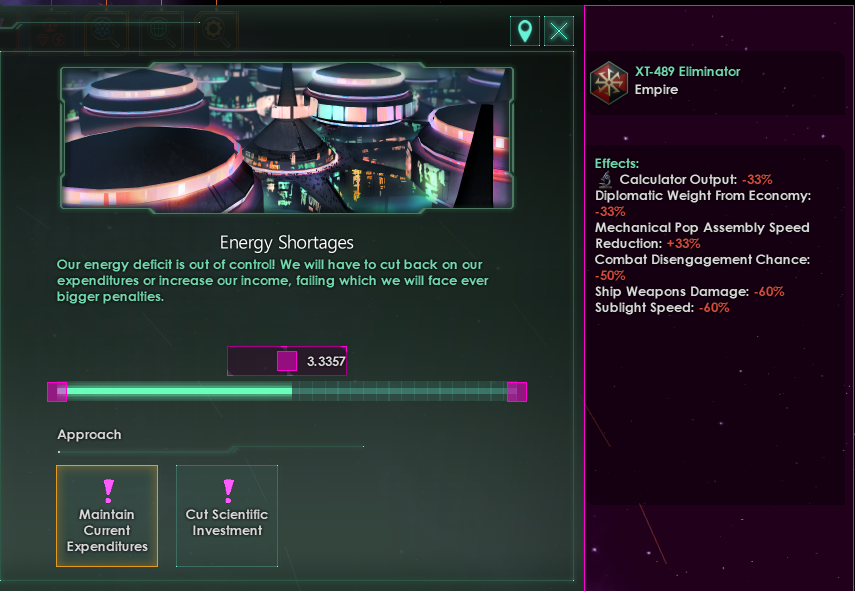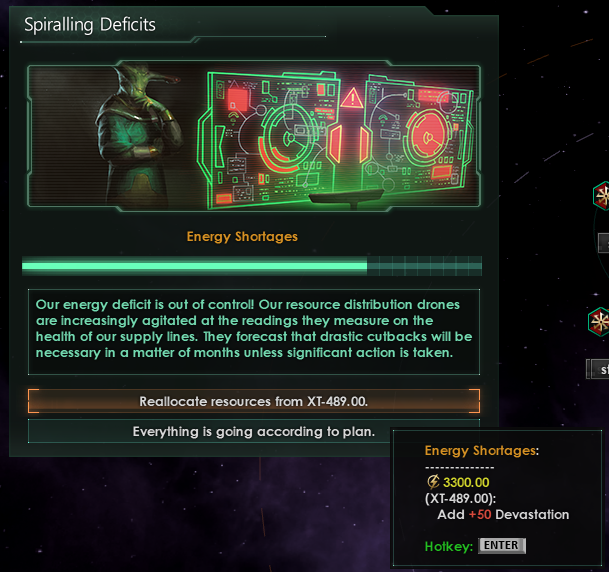
Apr 14, 2022
Stellaris - MrFreake_PDX

written by Eladrin
Greetings!
Last week’s dev diary went through the new Enclaves in Overlord, the Bulwark, some more Holdings, and the Imperial Fiefdom Origin. This week we’re going to look at two constructions, the Scholarium, Specialist Holdings and a summary of the origin revealed by Nivarias earlier this week.
As with all previews, numbers, text, and so on are not quite final and are still subject to change.
Orbital Rings
Orbital Rings are a Tier 3 Voidcraft Engineering technology requiring Starholds, Galactic Administration, and Ceramo-Metal Infrastructure. Like Habitats, they do not require Mega-Engineering.
They are treated as a variant of Starbases, and while system control is still primarily determined by the actual Starbase of the system, the planets they surround cannot be invaded until the Orbital Ring has been disabled.
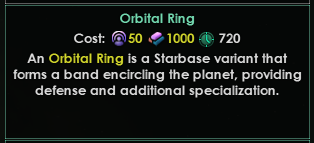
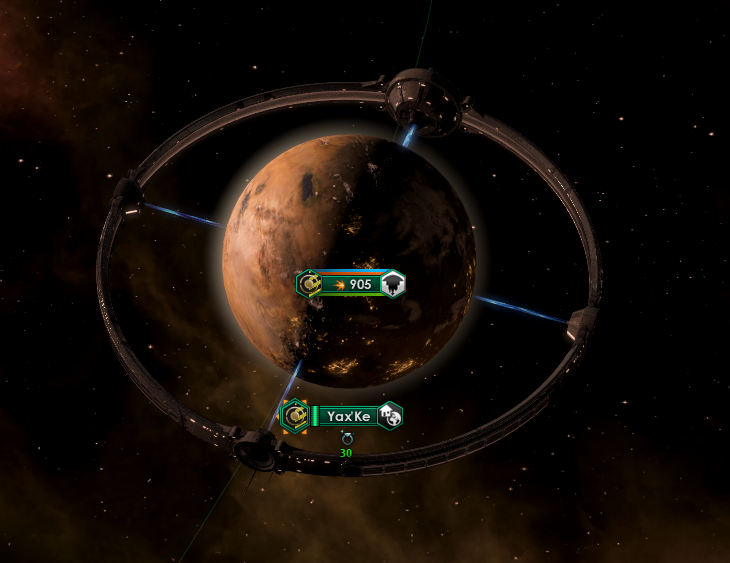
Initially your Orbital Ring will have two module slots and no building slots. As you gain additional Starbase technologies (Star Fortress and Citadel) and improve the planet’s capital building you can upgrade the Orbital Ring through two additional tiers, adding one module and building slot at each tier.
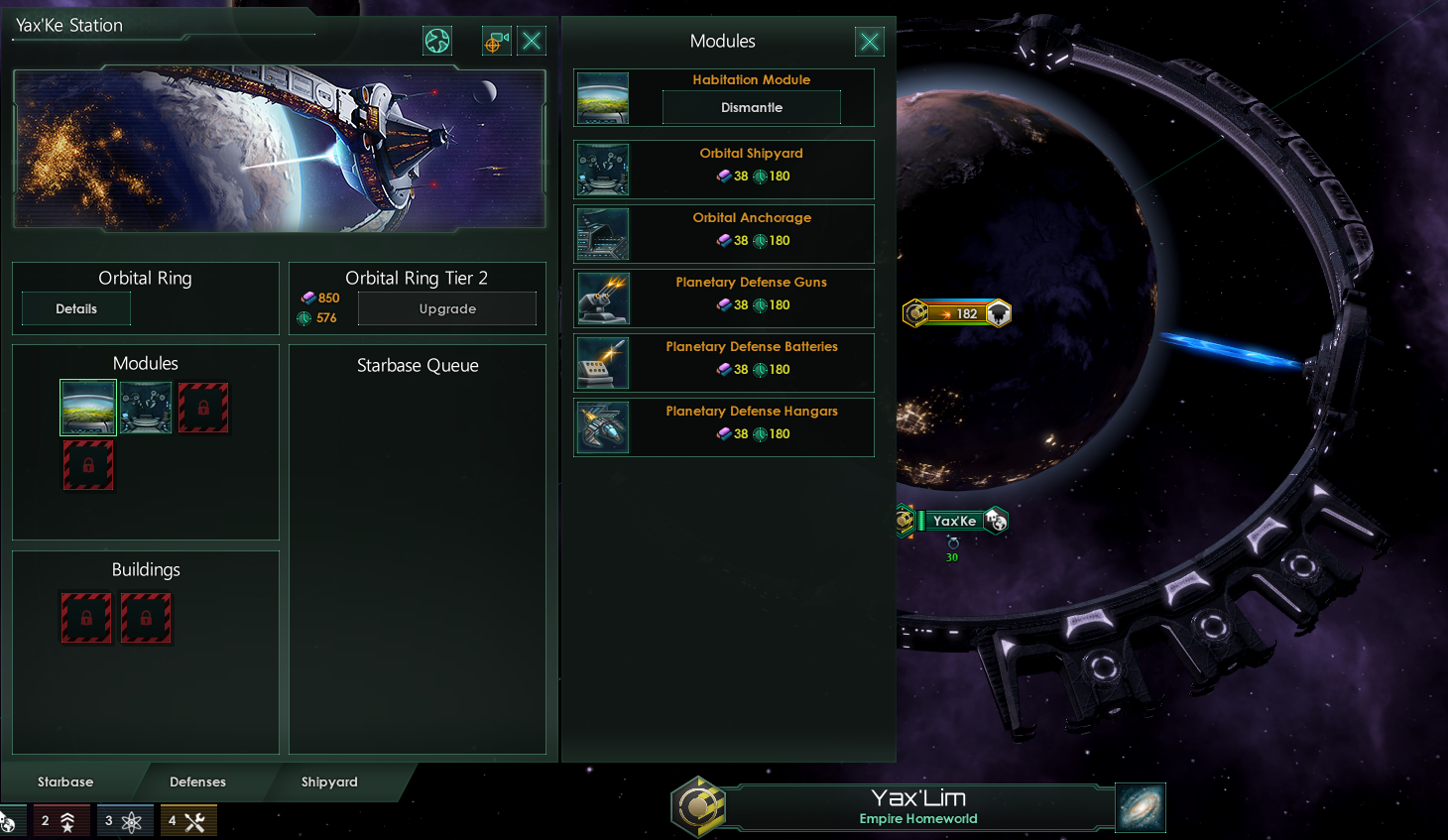
Most of the Orbital Ring modules are similar to Starbase modules. Defensive modules trade piracy protection for extra hull and armor, and the Habitation Module is a Ring specific module that adds a district slot to the planet below.
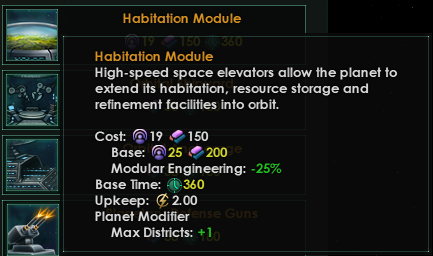
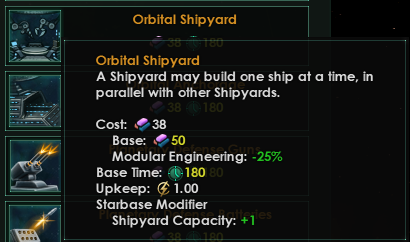
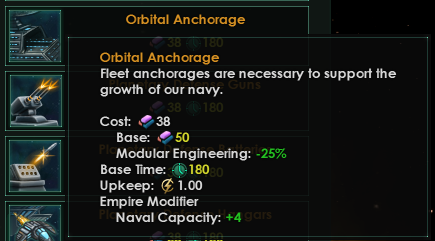
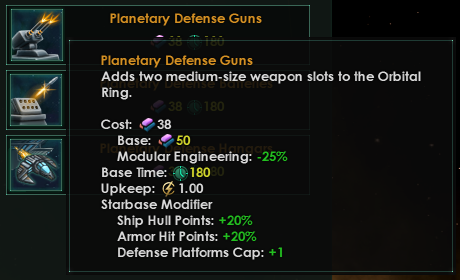
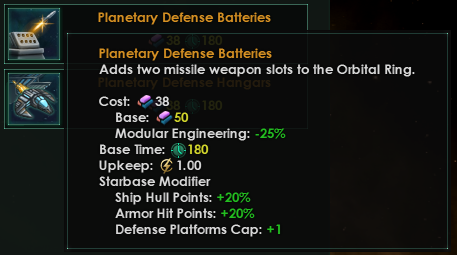
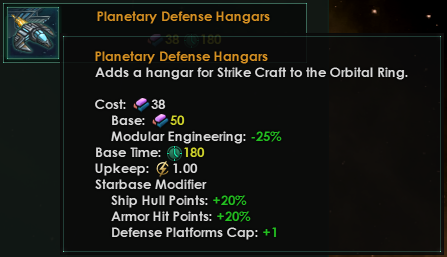
Systems with multiple habitable planets can become an exceptionally thorny obstacle if you build multiple defensive orbital rings supporting a bastion starbase at the center.
Having a large conveniently placed ring around your planet provides an opportunity to enhance the planet with some interesting buildings. These stack with similar planetside buildings.
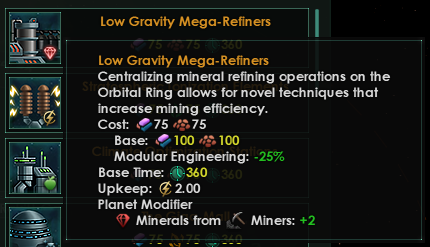
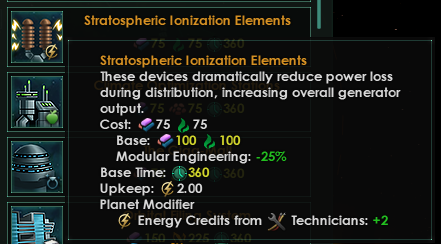
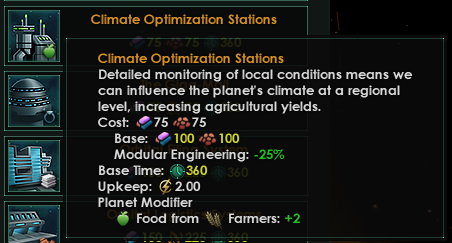
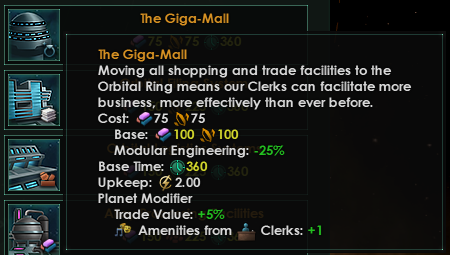
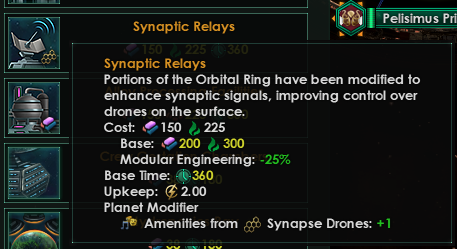
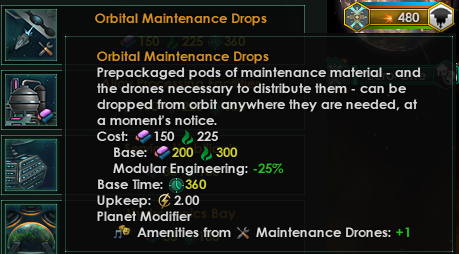
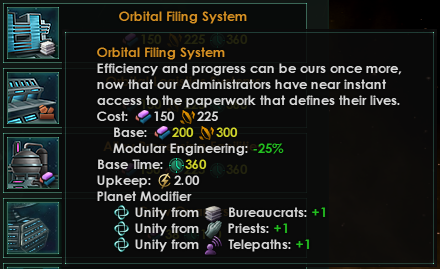
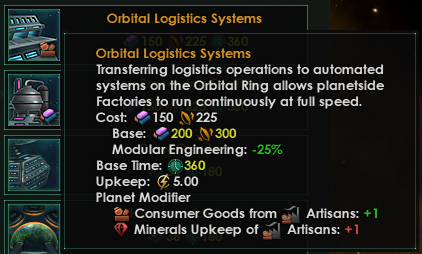
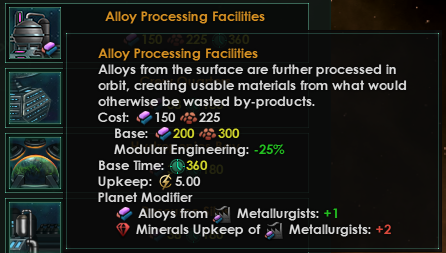
Many standard starbase buildings can also be placed on an Orbital Ring - though some are now limited to one per system.
Orbital Rings fill the same “orbital slot” as habitats, so you’ll have to decide which of the two you want over your worlds, and they can only be built around colonized habitable planets.
Quantum Catapult
There comes a time in every overlord’s reign when a faraway crisis suddenly requires your attention. Things are going on halfway across the galaxy, a rival in the way has closed borders to you, and the Galactic Community is debating something about Tiyanki. Again.
A true galactic overlord has to be able to project their power at will, and doesn’t let these little things stop them from enacting their plans.
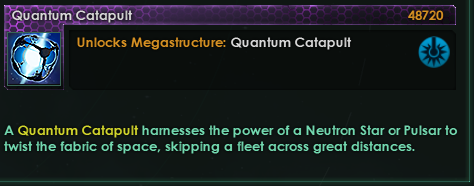
Built around Neutron Stars or Pulsars, Quantum Catapults can hurl fleets across incredible distances of space, but these megastructures have accuracy issues over long distances.

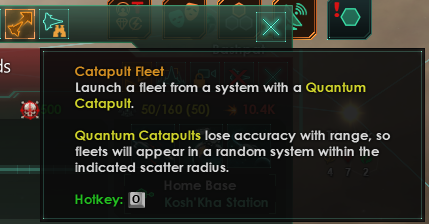
The maximum range of a Quantum Catapult is significantly longer than jump drive range but there’s a risk the fleet may not land exactly where they intended. The further the launch, the wider the scatter radius.
Higher tiers of the Quantum Catapult are both more accurate and have longer maximum range, with a well-placed fully-constructed Catapult able to threaten virtually anywhere, even in a huge galaxy.
After selecting a desired target system, a short windup later your fleet will arrive somewhere in a nearby system, without any lingering jump debuffs... But there is a chance, especially on spiral maps, that this “nearby” system is quite a few jumps away from your intended destination when traveling the hyperlanes.
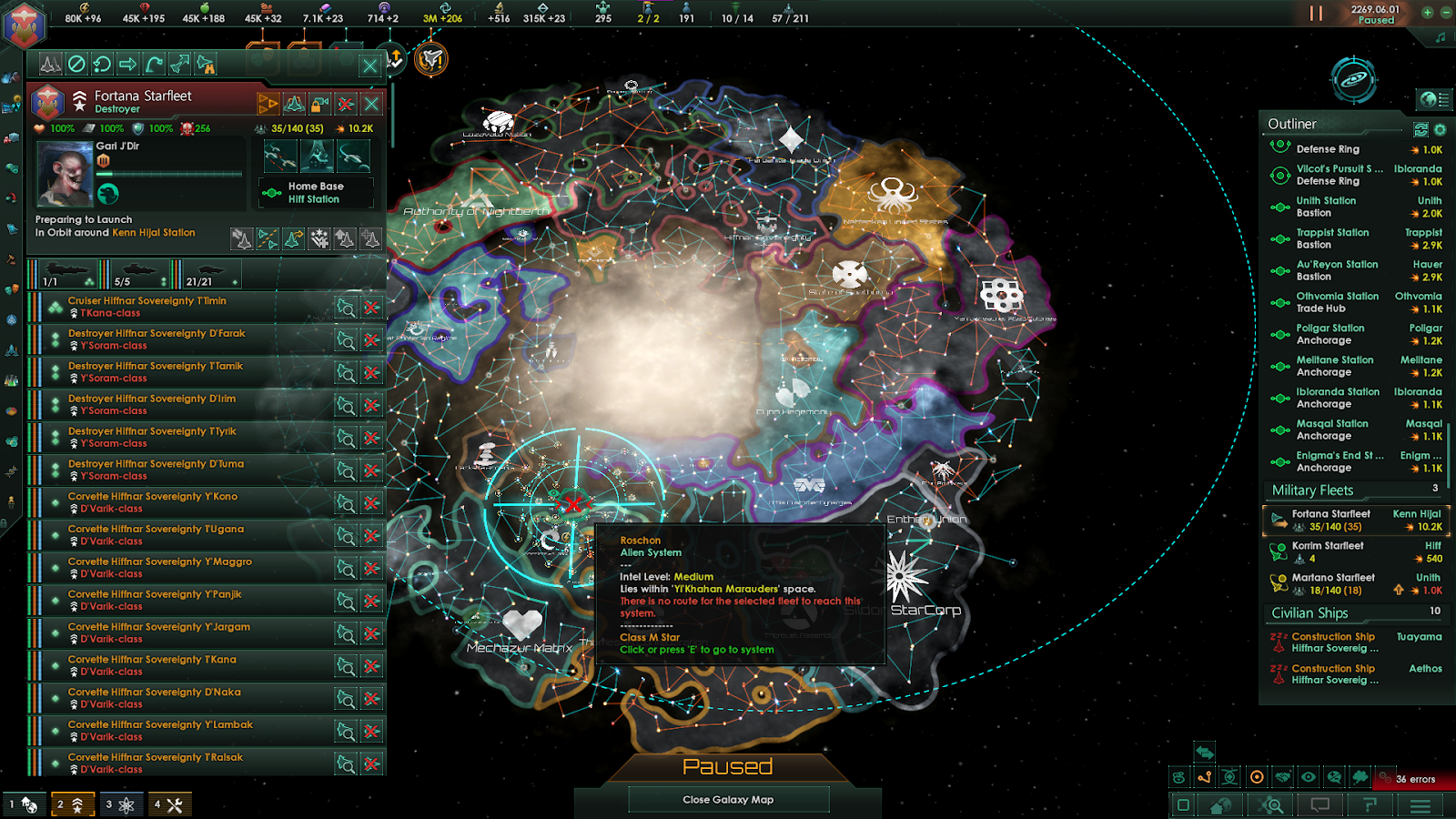
There’s no clear route to this system, but the Catapult doesn’t care.
Quantum Catapults also have a passive effect that reduces MIA time for your missing fleets, which comes in useful when moving reinforcements to the front line, using experimental subspace on your science ships, or if your launched fleet lands in a system with Closed Borders.
The Scholarium
The Scholarium is the last of the Specialists coming in Overlord. Dedicated to the advancement of science, the Scholarium relies on their overlord to defend them from enemies.
The State of Saathuma are our Scholarium minions, bringing us the secrets of the universe in exchange for our benevolent protection.
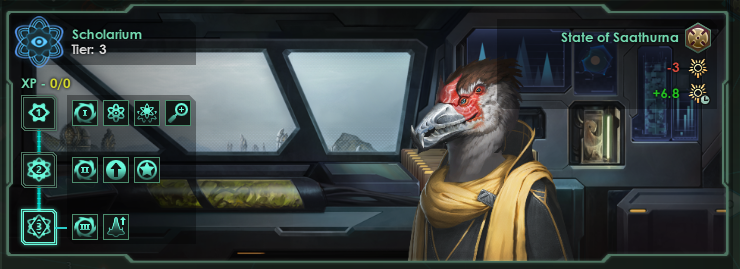
As with the other specialist empires, the penalties and benefits both grow as they tier up.
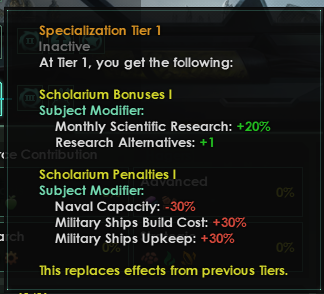
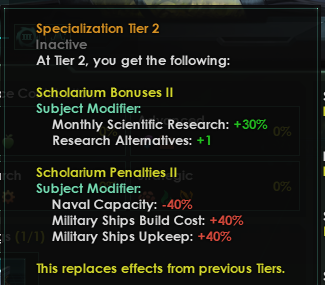
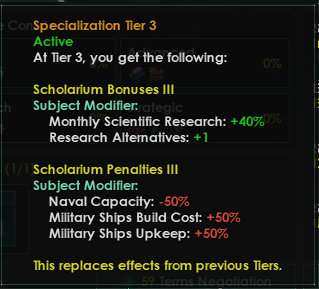
Where the Prospectorium could discover valuable deposits in their space, the Scholarium instead finds opportunities to learn.
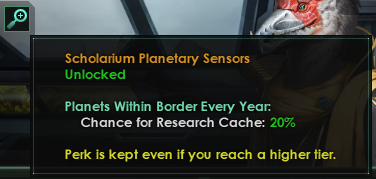
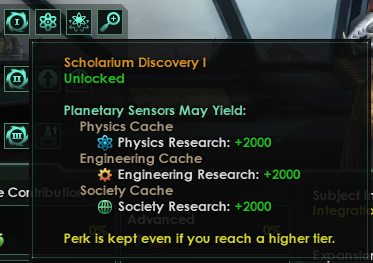
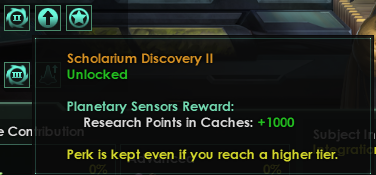
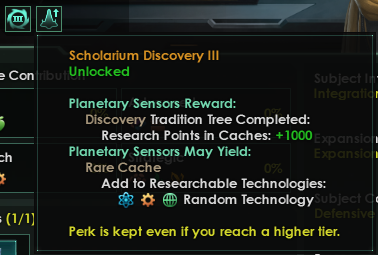
The advisor perk, as you likely expected, improves your overlord’s scientific research.
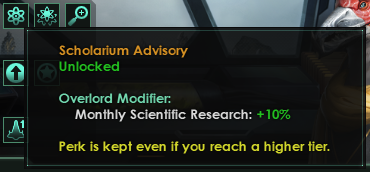
And like the others, they have a Hyper Relay Network effect at Tier 1.
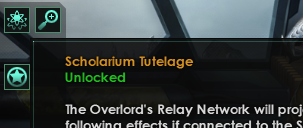
Next week? Yeah, why not, let's show it next week.
At Tier 2, the Scholarium also gains a set of special traits for their leaders, and the ability to trade their Scientists to their overlord.
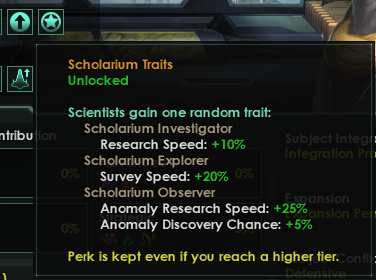
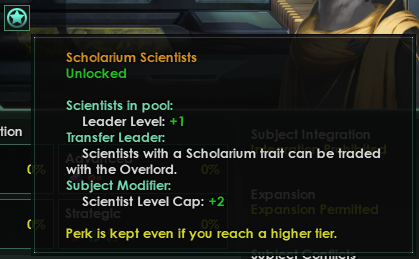
Finally, at Tier 3 the Scholarium gains an advanced variant of the Science Ship, the Arctrellis. Like the Prospectorium’s Battlewright, it provides an aura in combat, but this time the scientists aboard the ship can cripple opposing ships piloted by AI - whether they be machine intelligences, sapient combat computers, or the Contingency.
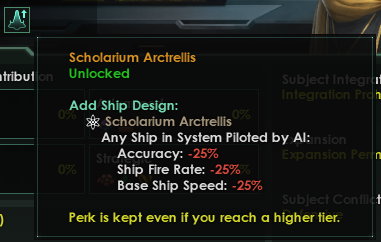
It should be noted that as a Scholarium, the military penalties make it difficult to free yourself from under your overlord’s control. You may need some powerful friends to help you out.
Specialist Holdings
Each of the Specialist empires has a unique holding that their overlord can build on their worlds.
Prospectoria can host the Offworld Foundry, which converts subject minerals into alloys for the overlord.
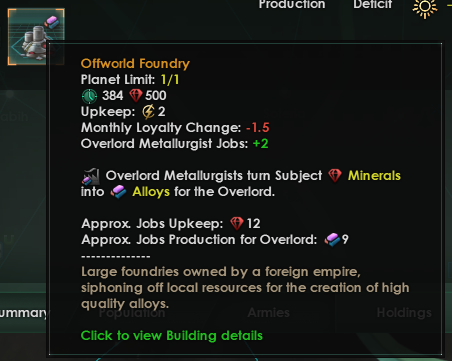
Bulwarks can have the Vigil Command, which grants additional Defense Platforms to their overlord. As the Bulwark increases in tier, these values increase.
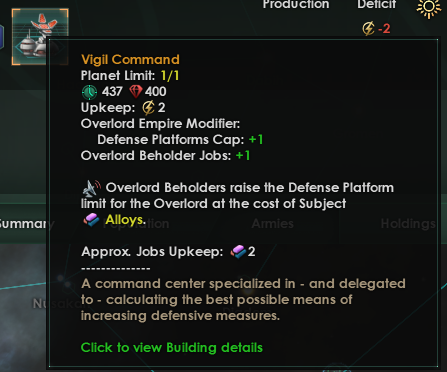
Scholarium worlds can build the Ministry of Science. Surrounding their planet with additional Science Ships increases the effect of the building.
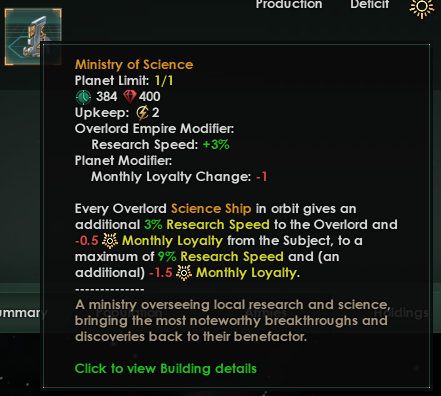
One extra holding we’ll show this week is for the Tree of Life origin. It lets you share your blessings with your subjects, improving both the habitability and food production of your subject’s world, though a fair bit will be consumed by the sapling itself.
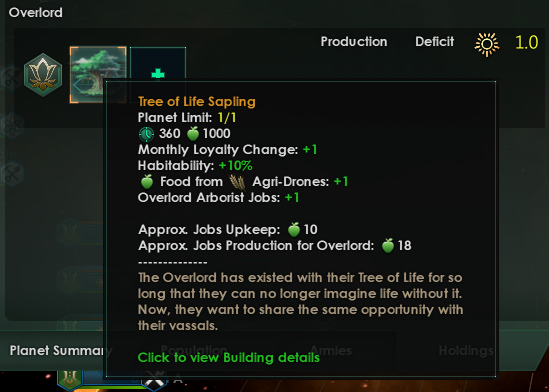
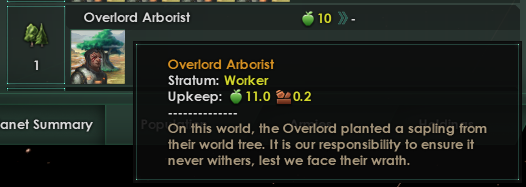
Galactic Community
It seemed natural that with such a large focus on subjugation, the Galactic Community would want to regulate things in different ways. Two more minor resolution lines are coming, in the new Suzerains and Sovereignty category.

The Intergalactic Directives line of resolutions protects the rights of subjects and encourages the preservation and release of weaker societies.
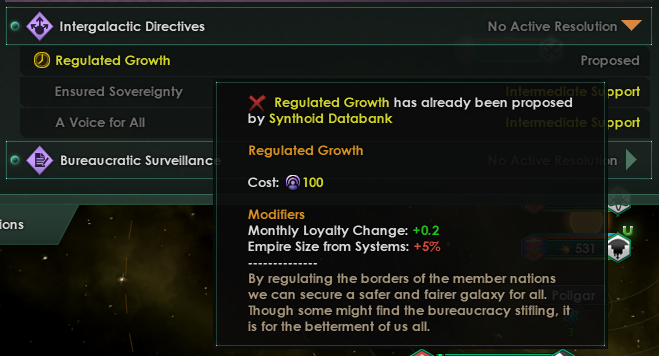
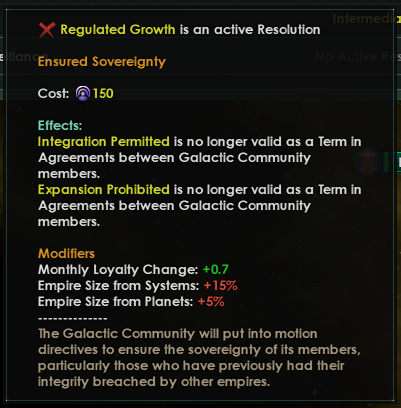
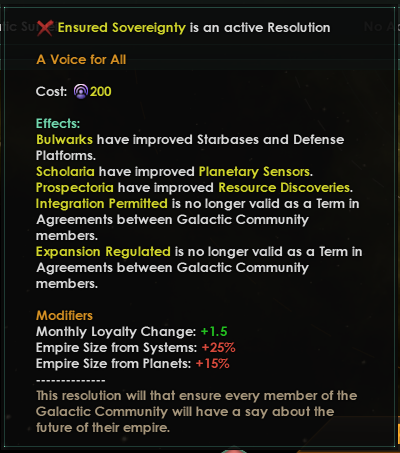
You can’t take the sky from me.
Bureaucratic Surveillance, on the other hand, focuses more on the rights of the overlords, requiring a short leash on their subjects and encouraging the use of holdings. Resolutions in this line can only be proposed by empires that are overlords of another empire.
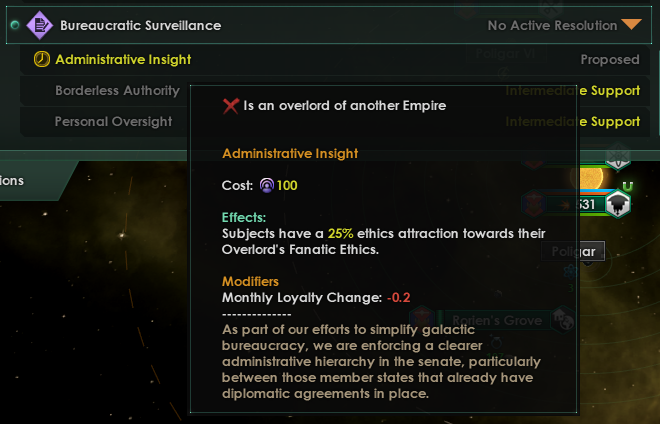
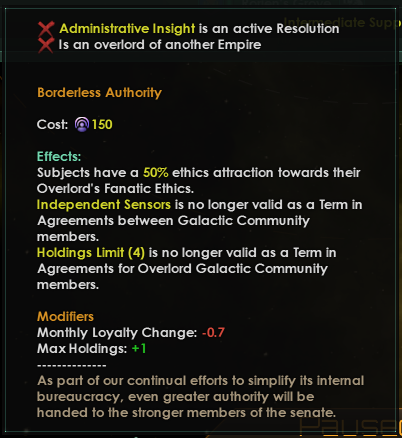
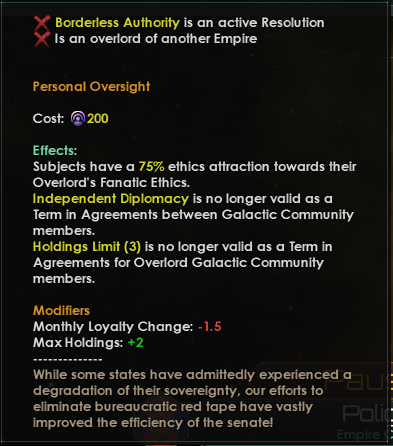
Borderless Authority and Personal Oversight force extra holdings into subject contracts, but since the total limit remains 4 the highest Holding Limit terms become redundant.
Teachers of the Shroud
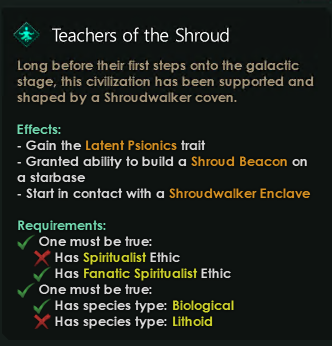
With the Teachers of the Shroud origin, your civilization was identified as a civilization of interest long ago by the Shroudwalkers, and they carefully guided you as their visions instructed. Your species begins with the Latent Psionics trait and in contact with the Shroudwalker coven.
Your civilization is treated as if it already has the Mind over Matter Ascension Perk, meaning Transcendence is not far away. (And you cannot pursue Synthetic or Biological Ascension.)
Next Week
Next week we’ll take a ride on the Hyper Relay Network, finally see those three Specialist perks, look at some other balance changes and additions coming in Cepheus and Overlord, and reveal another Origin.
Video versions of these dev diaries are available at the Stellaris Official YouTube Channel. Subscribe so you don’t miss them, and wishlist Overlord if you haven’t already!





